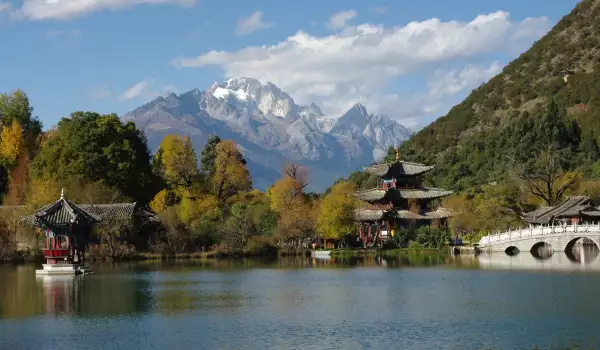Lijiang

Lijiang is a small ancient town located in the northwestern corner of Yunnan province in China. To this emblematic of Chinese culture and history place you can reach by first taking a plane to land at the airport in Kunming, from there Lijiang is about 40 minutes by car or about 37-40 km.
Lijiang is called the largest city of ink or Oriental Venice because of the clear waters of the river, which flows through it. It has over 800 years of history being founded in the late Sun dynasty and initial management of the Yuan Dynasty. Both Chinese families ruled from 960 to 1368 and this became an important cultural city, a political and commercial center, this has been a key site for trade with Tibet, India and other parts of Asia.

To enjoy Lijiang is best to walk around. The streets of the city are small and narrow, but there are arranged side by side wooden houses with tiled roofs, with doors and windows on which are painted different figures. The ancient town owes its unique atmosphere to the water, which it feeds life. Black Dragon Lake is divided into separate streams, to ensure that every family has access to it. 350 bridges pass over these rivers, some of which were built 7-8 centuries ago.
From December 1997 the city Lijiang is listed as a World Cultural Heritage Site by UNESCO. The evaluation committee for the protection of natural and cultural heritage said that the city illustrates a genuine style of ancient China. Its buildings passed through different dynasties and concentrated cultural and traditional specificity of the different nationalities of China. The city still has preserved old irrigation equipment from antiquity which can even now be used.
One of the seven largest freshwater lakes in China is located in Dalian. It is called Erhay, which means sea in the shape of an ear. Around are the powerful towering mountain Tsanshan Yulun, which translated sounds like Jade Dragon. The highest peak is Shandzadu reaching a 5600 m altitude.






